The story of the Wise Men’s visit to the infant Jesus is a captivating narrative filled with mystery, wonder, and profound theological significance. It’s a tale that has inspired art, music, and countless reflections throughout history, inviting us to contemplate the nature of faith, guidance, and the universal impact of the Christ child.
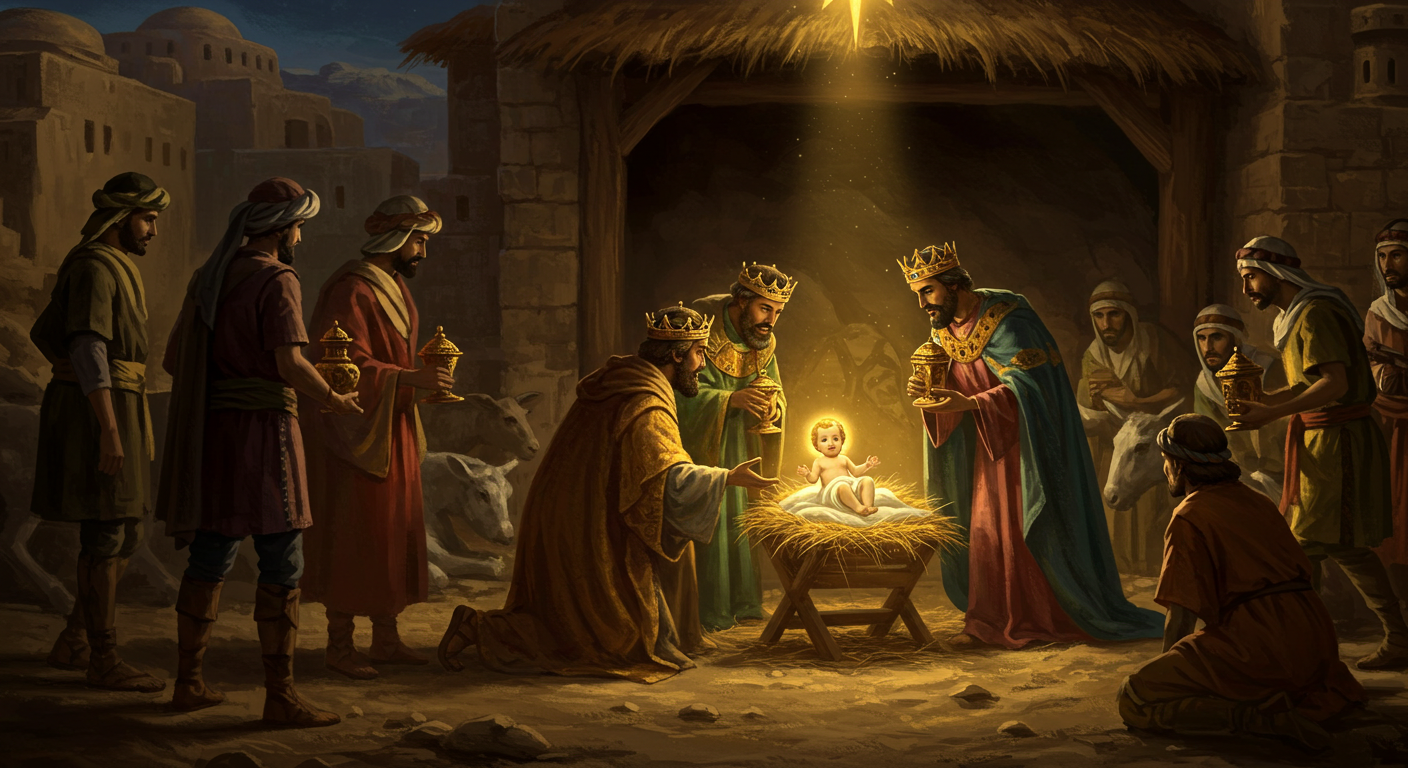
The Star of Bethlehem
The journey begins with a celestial event – the appearance of a unique star, often interpreted as a sign from God, guiding the Wise Men from the East. The exact nature of this star remains a subject of debate among astronomers and theologians, with various theories proposed, some suggesting a comet, others a conjunction of planets. Whatever its nature, the star serves as a powerful symbol of divine direction.
The Wise Men’s Identity
Tradition often refers to them as ‘kings,’ but the Bible doesn’t specify their number or social standing. The Gospel of Matthew simply calls them ‘Magi,’ a term referring to Persian astrologers and priests who were learned in the study of celestial bodies. Their wisdom lay not only in their astronomical knowledge but also in their spiritual discernment.
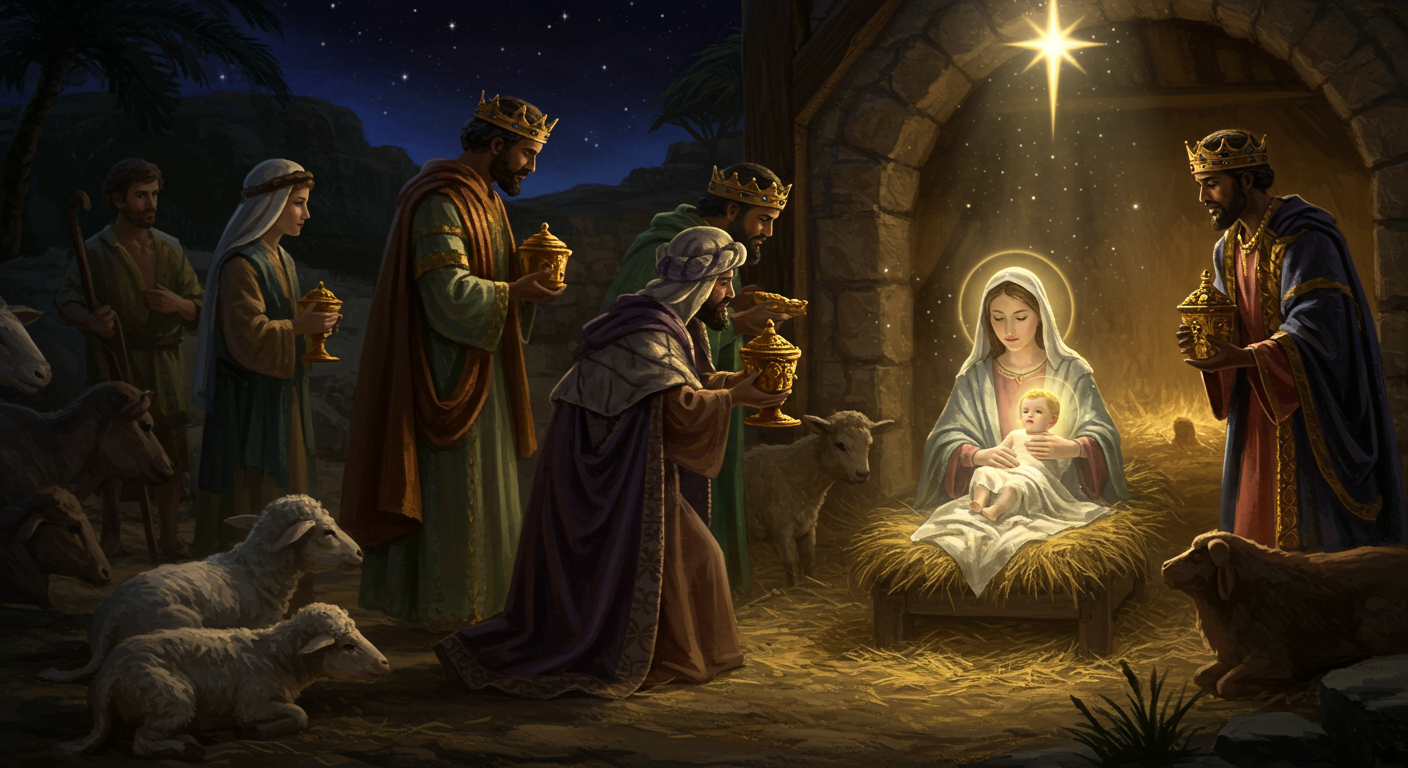
The Journey from the East
Their journey from the East was likely a long and arduous one, potentially spanning hundreds of miles across challenging terrains. The journey itself signifies the lengths to which people will go to seek truth and worship. Their dedication serves as a testament to their faith.
Following Divine Guidance
The star didn’t simply point the Wise Men to a specific location; it guided their steps, moving ahead of them, leading them to their ultimate destination. This speaks to the active nature of God’s guidance in our own lives, reminding us that we are never truly alone on our spiritual journeys.
Arrival in Jerusalem
Upon arriving in Jerusalem, the Magi sought out King Herod, inquiring about the newborn ‘King of the Jews.’ Herod’s reaction is telling – he is filled with fear and suspicion, revealing the political and religious tensions of the time.
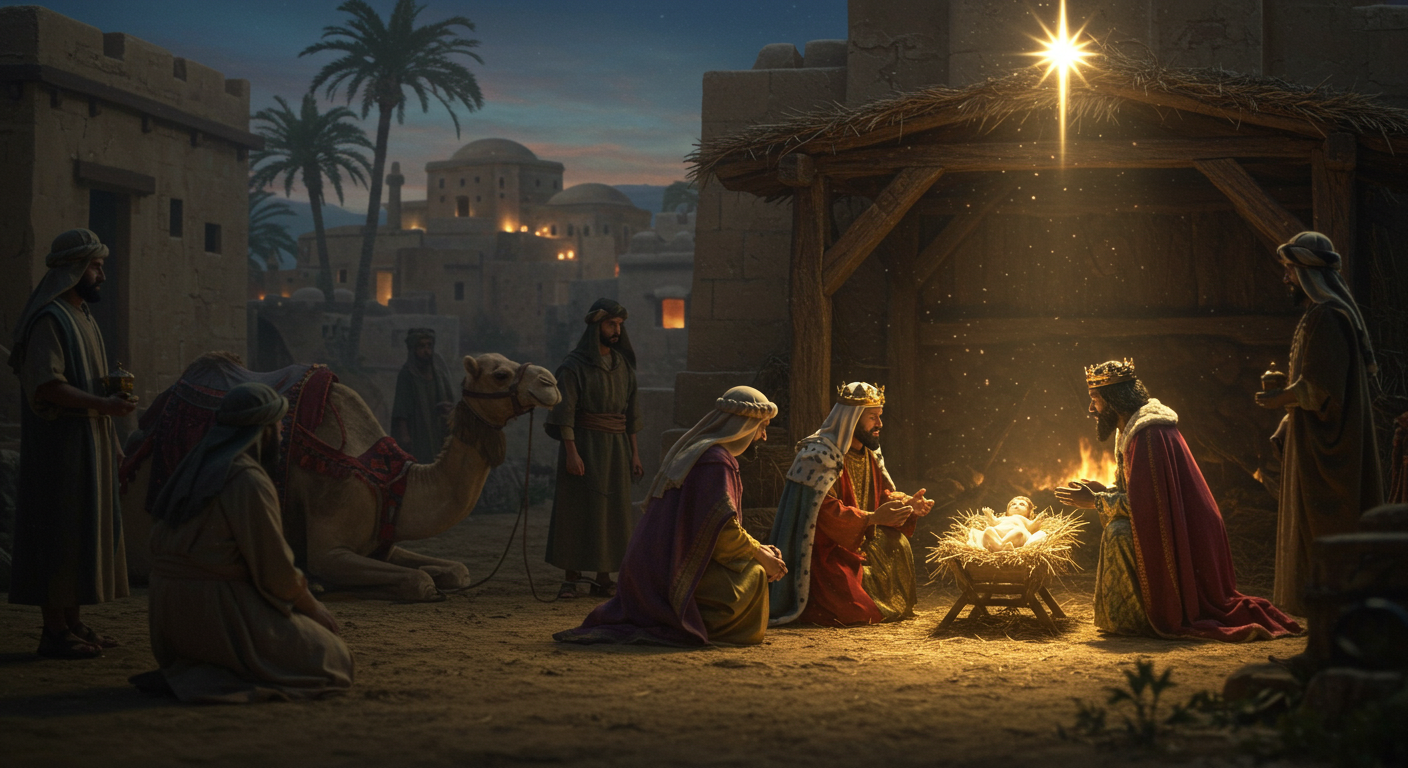
Herod’s Deception
Herod’s request for the Magi to report back after finding the child reveals his manipulative and ruthless nature. He plans to eliminate the potential threat to his power. The deceit of Herod highlights the opposition faced by Jesus even from his earliest days.
The Prophecy of Micah
The Magi’s knowledge of the prophecy in Micah 5:2, which spoke of a ruler who would come from Bethlehem, demonstrates their familiarity with Jewish scriptures and their understanding of its messianic implications.
The Star Leads Them On
After their encounter with Herod, the star reappears, guiding the Magi away from Jerusalem and directly to Bethlehem.
Worship at the Manger
The Wise Men’s arrival at the manger is a scene of profound reverence and worship. They fall down and pay homage to the infant Jesus, recognizing his divine nature.
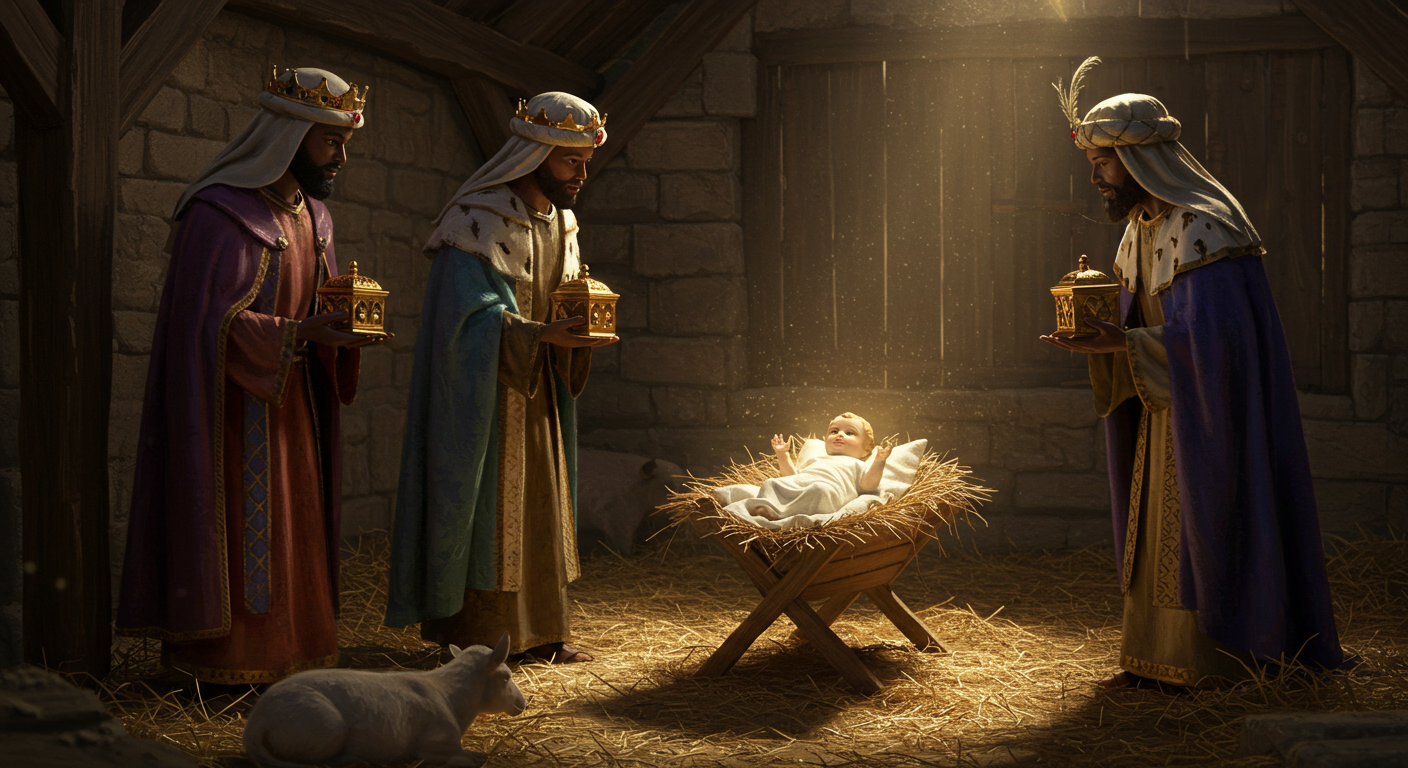
The Meaning of Their Gifts
Their gifts—gold, frankincense, and myrrh—hold symbolic significance. Gold represents kingship, frankincense signifies divinity, and myrrh foreshadows Jesus’ suffering and death.
The Warning Dream
God intervenes to protect the child and the Magi by warning them in a dream not to return to Herod.
A Different Route Home
Following the divine warning, the Wise Men return to their homeland by a different route.
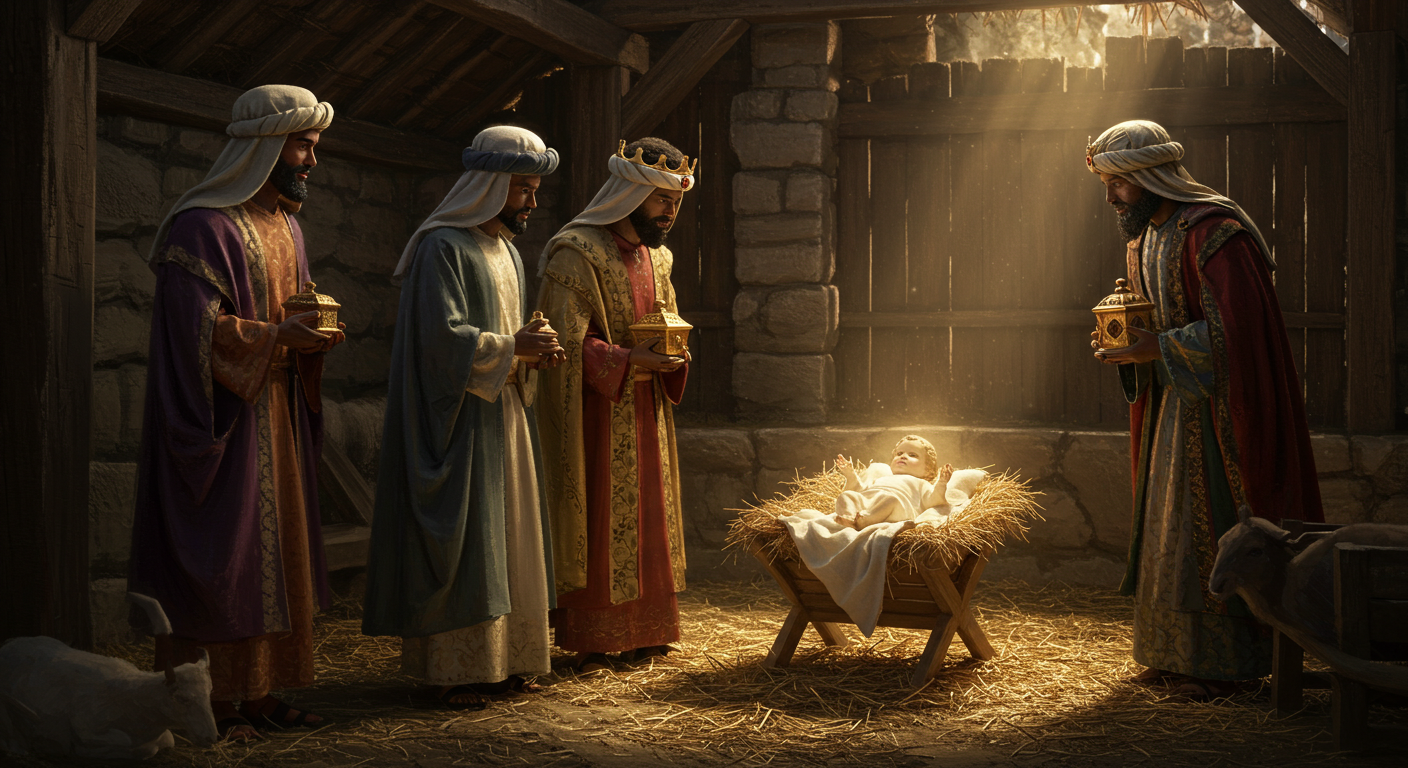
The Significance of the Visit
The visit of the Wise Men demonstrates that the birth of Jesus wasn’t a merely local event but had global significance.
The Universality of Salvation
Their coming from the East highlights the universality of salvation, extending God’s grace to all nations.
The Mystery and Wonder
The story of the Wise Men is a testament to the power of faith, the mystery of God’s plan, and the wonder of the incarnation.
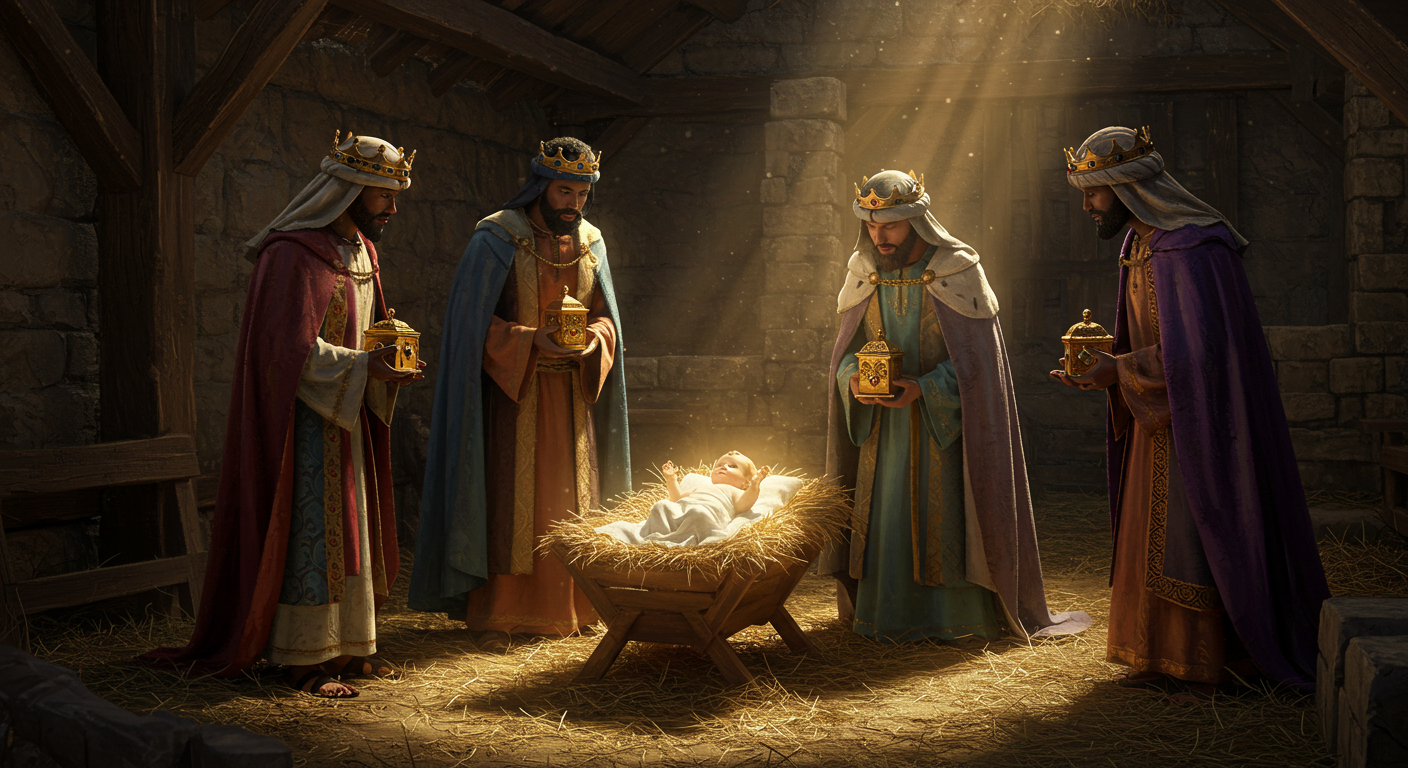
Conclusion
The visit of the Wise Men is a timeless narrative filled with wonder, mystery, and profound spiritual significance. It reminds us of the universality of God’s love, the enduring power of faith, and the guiding presence of the divine in our lives. Their journey is an invitation for us to embark on our own quest for truth and to offer our gifts of adoration and service to the Christ child.
Frequently Asked Questions
What were the Wise Men’s names? The Bible doesn’t reveal the names of the Wise Men; tradition has assigned various names but these are not scriptural.
Why did they bring gifts? Their gifts—gold, frankincense, and myrrh—were symbolic offerings recognizing Jesus’ royal status, divinity, and sacrificial nature. Learn more about the symbolism here.
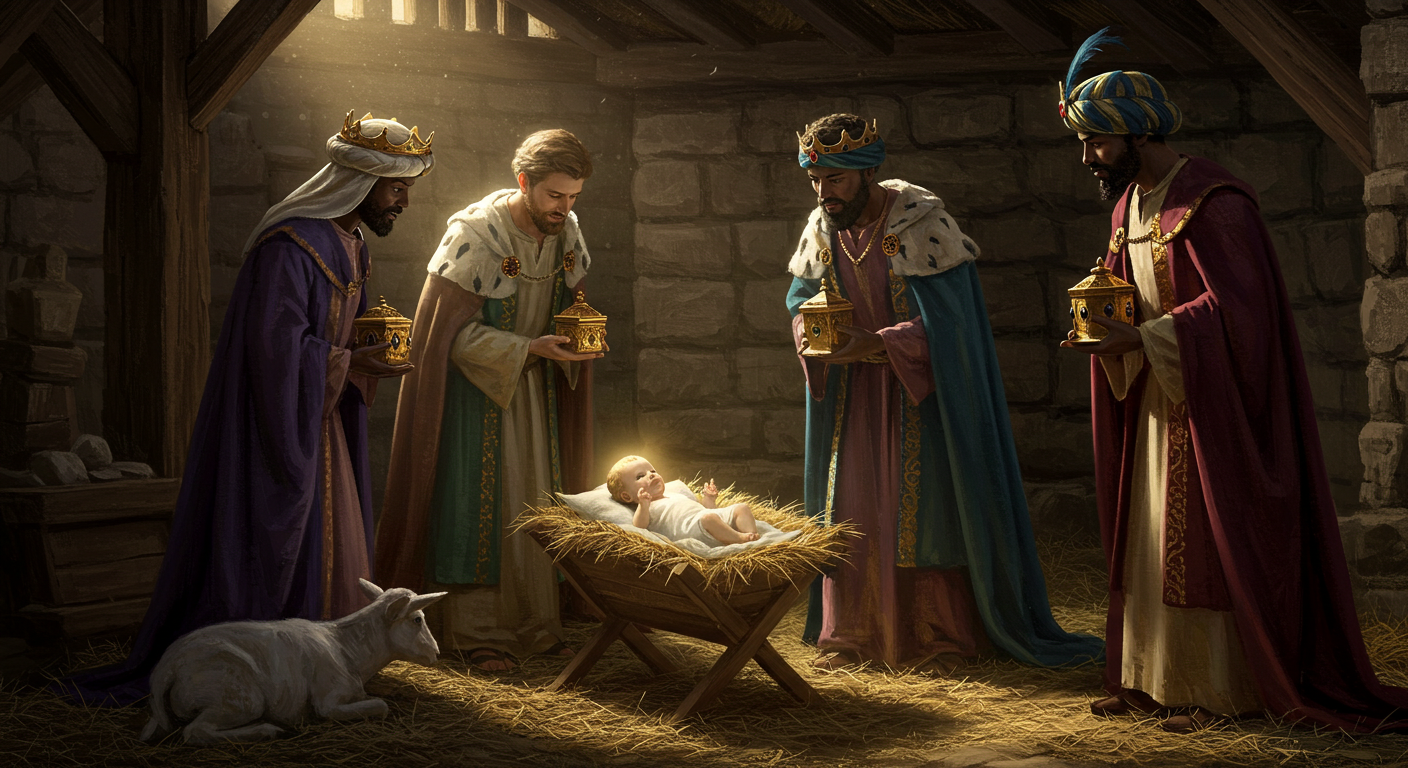
How many Wise Men were there? The Bible doesn’t specify a number. The traditional depiction of three Wise Men is based on the three gifts mentioned.
What happened to the Wise Men after they left Bethlehem? The Bible doesn’t describe their later lives, leaving their story open to interpretation and reflection.
What is the significance of the star? The star is a symbol of God’s guidance and the extraordinary nature of Jesus’ birth. Explore different interpretations here.
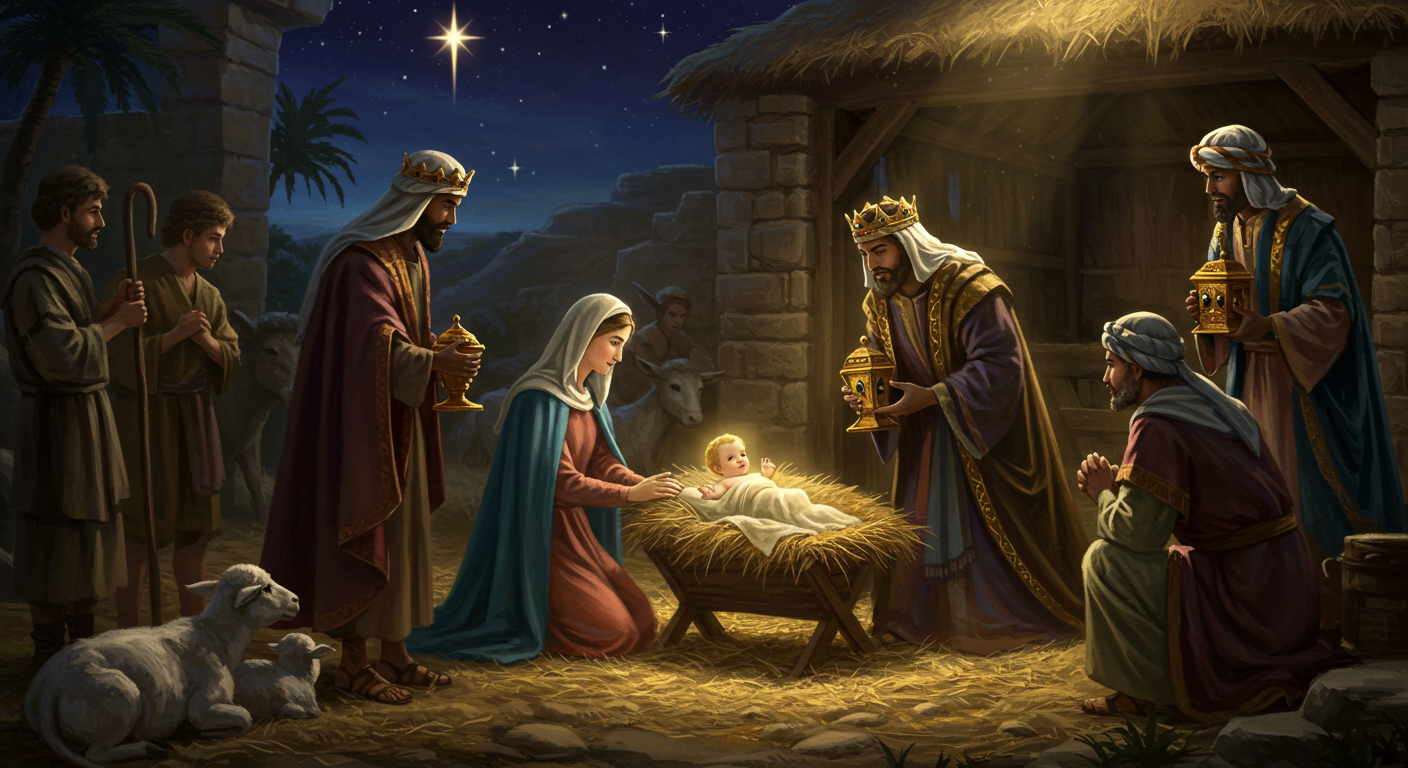
Leave a Reply